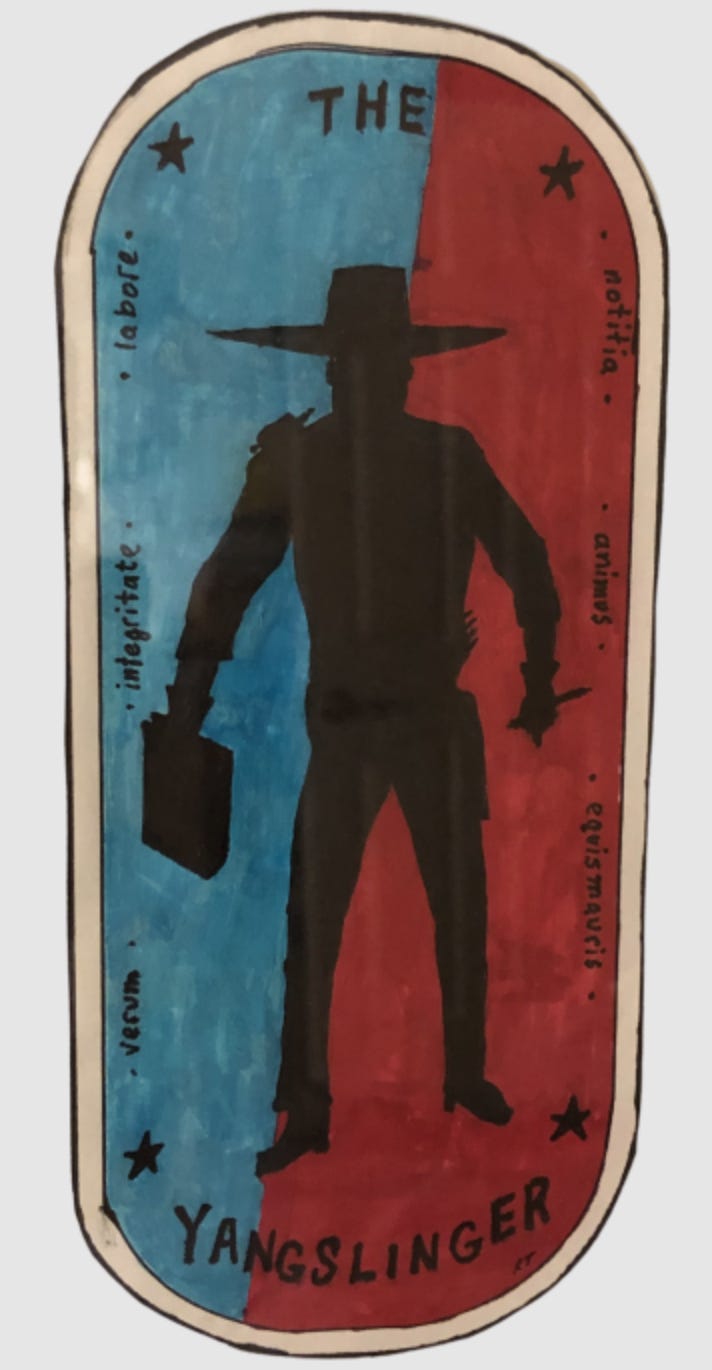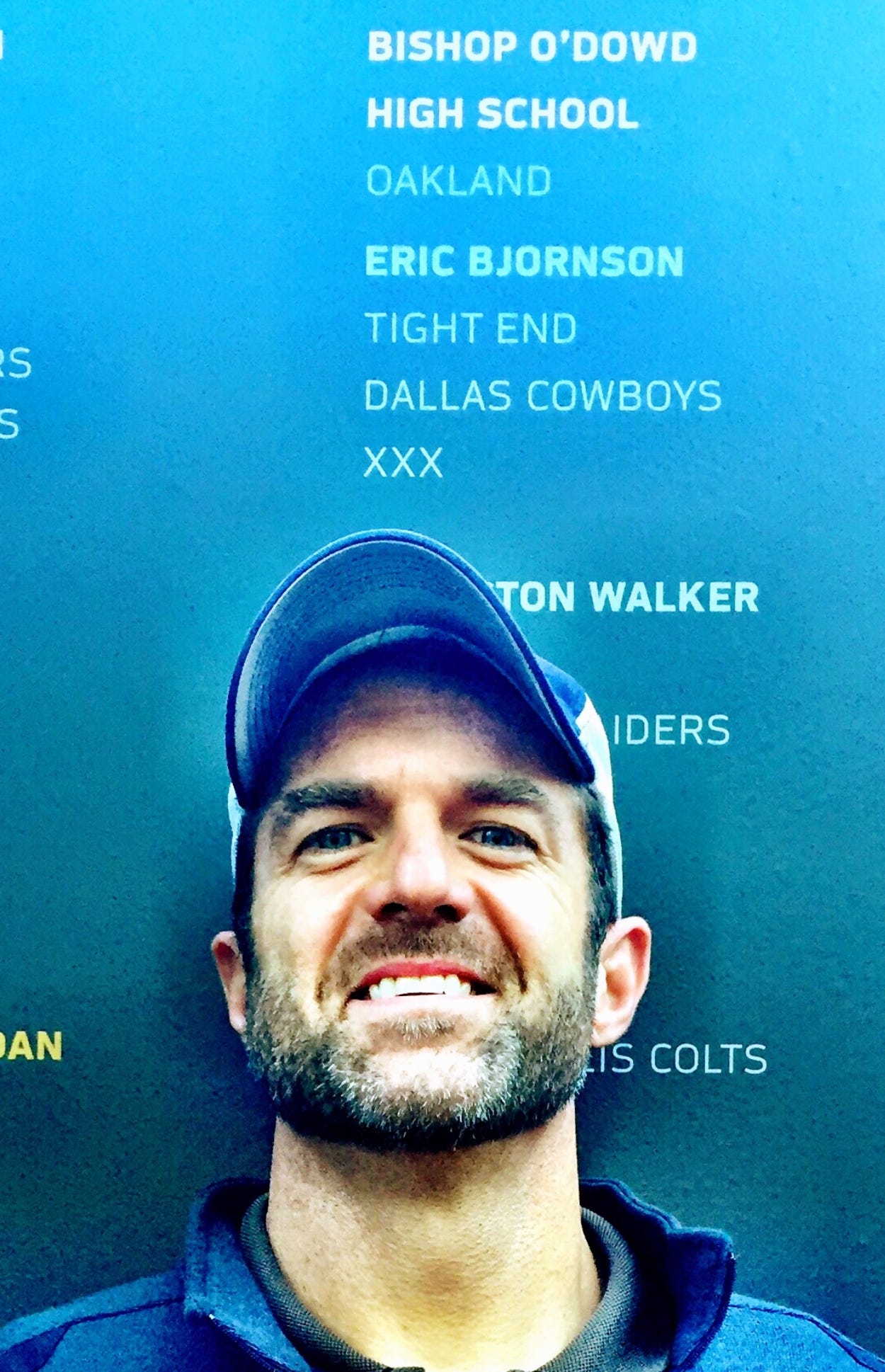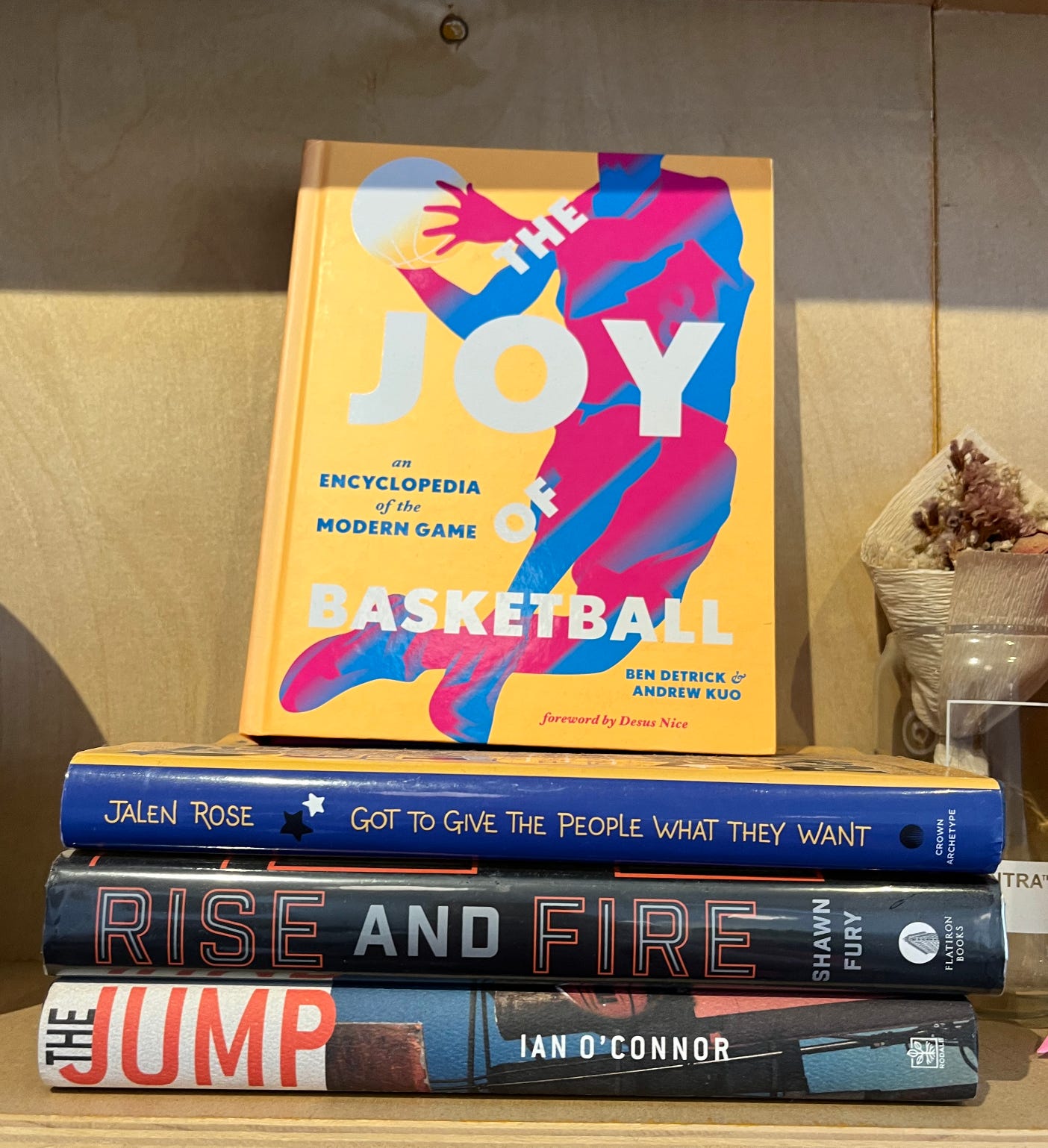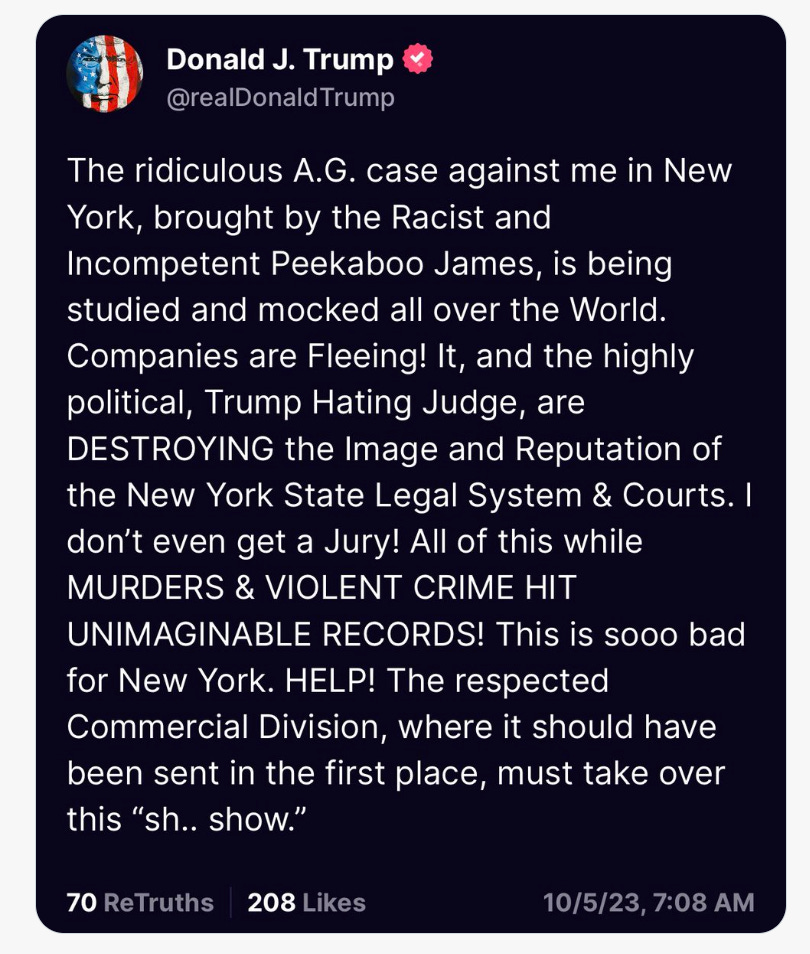The Yang Slinger: LXV
I long prided myself on my reporting. But until a genealogist named Michele Soulli re-entered my life, I didn't know shit. Here's a story about the impact of hardcore research.
Back in the late-1980s, I attended Mahopac (N.Y.) High School with a girl named Michele Soulli.
Actually, lemme re-state: I think I attended Mahopac (N.Y.) High School with a girl named Michele Soulli. I say “think” because in our four years together, Michele and I uttered precisely zero words to one another. We occupied different spaces in different worlds—I was the cross country/track geek who served as sports editor of The Chieftain, our student newspaper. And Michele’s prime spot was the smoking section (yes, we had a smoking section). I was Opie Taylor—never kissed a girl, never puffed a Marlboro, never took so much as a sip of beer. Michele was … well, I dunno. She smoked a lot of weed. Smoked cigarettes. Had crazy long hair that (appropriate for the era) concealed her eyes and much of her face. She was an excellent history student who—by her recollection—otherwise gave two shits about school.
Had you asked me, back in the lord’s year of 1990, what Michele Soulli would be doing in 2023, I would have shrugged. Then, if you put a gun to my head and demanded a reply, I would have guessed, “CVS clerk” or “making sandwiches at Rodak’s Deli.”1
Instead, she’s saving my career.
When it comes to my relationship with my hometown, nothing has been more injurious than Facebook.
This is obviously a common American phenomenon—but, with me, it feels particularly piercing. Thirteen years ago, before Donald Trump and Matt Gaetz and Marjorie Taylor Greene and Boebert’s Beetlejuice Hand-Job Buffet, I organized the Mahopac High Class of 1990 20th reunion.
And it was … blissful. Fantastic. Awesome. People hugged. People danced. People ate and drank and even hooked up. We had an enormous turnout, and I’m pretty sure politics were evoked a great total of zero times.
Then—Facebook.
Thanks to fucking Mark Zuckerberg, I now know that a solid, oh, 60 percent of my graduating class think Barack Obama is a Kenyan-born Muslim and Donald Trump is standing up to the Deep State. I have seen how the Mahopac High Class of 1990 feels about Blacks, about immigrants, about the Covid vaccines, about diversity, about education. This, of course, has led to me to go all Manute Bol on people I once considered friends.
Somehow, however, Michele Soulli slipped through the Facebook cracks. It’s weird how these things work, isn’t it? We barely knew one another in high school, we hadn’t communicated in decades. Going back through Facebook Messenger, our first DM exchange took place in 2015, when we bonded over the stupidity of Mahopac’s anti-Muslim bigots. The Michele Soulli who I assumed would vanish into the abyss had relocated to the South. She worked in real estate. She earned a BA in history from Florida Atlantic in 2002.
Then, on February 4, 2021, a dramatic shift occurred. In the early stages of reporting “The Last Folk Hero: The Life of Myth of Bo Jackson,” I was running into some brutal blockades. So—on a whim—I wrote DOES ANYONE KNOW ANY GENEALOGISTS? on my Facebook page.
This followed …
I was skeptical. First, because was the chick from the smoking section really gonna be able to help? Second, because Michele had never heard of Bo Jackson. Third, because she knew nothing about sports. And fourth—because (again) Michele Soulli was the chick from the smoking section. Long hair. Weed and cigs. We referred to her ilk as “burnouts” in high school. And while this was ugly and unfair and disgustingly juvenile, the damnation hadn’t fully exited my head.
Then, she got to work.
In the three-plus years since that exchange, I have probably been complimented on my reporting chops, oh, 500 times.
And, if I’m being honest, 80 percent of the credit belongs to Michele.
My strength lies in doggedness. I will call and call and call, and text and text and text. I’ll read through documents and books, highlighter in hand, and mark up everything that leaps from the page. I’m an enormous believer in the chase—knocking on doors, firing off letters, doing whatever one must to communicate with witnesses to history.
Unlike me, however, Michele is an absolute Jedi master of all things that need to be found and pursued. She calls herself an amateur genealogist, but that’s the equivalent of Michael Phelps being an amateur swimmer. Her first dabble with genealogy dates back to late 1991, when Pearl Jam released the song “Alive.” The lyrics, written by Eddie Vedder, concern the pursuit of a lost father—and Michele felt it. “I never had grandparents,” she says. “Everyone else around me did, but I didn’t. In the song, by the time Eddie finds out who his biological father is, he’s dead. So I wanted to know who my grandparents were, because being 100 percent Italian and not having grandparents felt very odd.”
Thus began a pre-Internet search that resulted in the tracking down of her grandmother (Soulli: “It turned out she had another child 10 years later.”), and—empowered by curiosity and ingenuity—the pursuit of long-lost relatives of close friends and acquaintances. “I don’t think of myself as someone with 100 talents, but it turns out I’m really good at finding people,” she says. “And I love it. I really love it.”
When it came to Bo Jackson (again, a man she knew not walked the earth), one of the first things she did was create a family tree. And when Michele initially mentioned the idea, I thought, “Eh, sure. I guess.” I mean, how good of a Bo Jackson family tree could Michele Soulli possibly create?
Well …
Because of the size and scope, you won’t be able to make out the names and dates. But I’m guessing Bo Jackson never knew he had great-grandmothers named Virginia Ezel and Moning Hood. I bet he’s never heard of half the great-uncles and great-aunts and third-cousins. That family tree set me off on a geographical path that took my Bo research in an entirely different direction. Suddenly, stuff started to line up. Who he was. What he came from. What his life meant—not merely in regard to sports, but as a Black man in America’s deep South.
Shortly thereafter, Michele and I had this exchange …
I actually thought the dazzling tree would be the height of Michele’s contributions. Instead, it was merely the beginning. Over the year that followed, my ol’ classmate uncovered one golden nugget after another after another. Lost relatives. Hard-to-find contact information. Addresses. Burial records. Legal filings. Bo’s father, A.D. Adams, had this unruly history of women and kids, and Michele compiled it all, piece by piece.
Perhaps her greatest track-down involved Bo’s wife Linda who—it turned out—was married when she met Bo on the campus of Auburn University. Michele and I had an endless string of conversations and DMs about Linda Jackson, because the life and times of a person’s spouse equals the life and times of the person himself. Michele turned up old high school and college yearbooks that included Linda—which led me to friends and classmates and teachers who remembered her. Michele even combed the records of the Birmingham Public Library, and hit me up with stuff like this (Linda, randomly, is in one of the images) …
Hell, Michele found Linda Jackson’s old dentist …
Found the obituary for Linda’s former mother in law …
Ultimately, she found all the important marriage records concerning Linda and her first husband—including documented proof that she was still wed while dating Bo. And while that might sound like an indictment of Linda Jackson—it’s really not. Perhaps she and her husband were separated. Perhaps they were long split. Perhaps the marriage was never much of a marriage.
Whatever the case, I never viewed it as anti-Linda.
I viewed it as pro-Michele Soulli.
The other day, while chatting with Michele via phone, she admitted something that blew my mind.
“Before this project,” she told me, “I didn’t know who Tupac was.”
Um.
On the one hand, Mahopac in the 1980s was the turf of Bon Jovi and Skid Row, of Mötley Crüe and Warrant. For fuck’s sake, our prom song was this brutal little ditty from … Sheriff. On the other hand—HOW THE FUCK DO YOU NOT KNOW WHO TUPAC SHAKUR IS? THE TUPAC SHAKUR? THUG LIFE? DEAR MAMA? CALIFORNIA LOVE? I MEAN, HOW IN THE WORLD …
Now she knows.
Over the past year, Michele has uncovered dizzying levels of Tupac material that no one—absolutely no one—has found. Every couple of days she’ll call or text with some new nugget, some intriguing lead, some idea of this or that or that or this. Earlier today I texted Jonathan Eig, my friend and the author of “King: A Life,” which has been nominated for the National Book Award. A couple of years ago I had told Jon about Michele’s gifts, and he employed her to track stuff down on MLK. I asked how it went …
“To me, the big thing is you don’t know what you’re going to find,” he said. “I went in looking for something simple: MLK‘s great grandparents. Who were they? Where did they live? Who enslaved them? I didn’t really find any of that but I found so much other stuff that there was no question that it was worth the time energy and investment. For example, through [Michele] I found Martin Luther King Sr.’s unpublished autobiography. I also found maps that show exactly where the Kings worked as sharecroppers, and who owned the land of the time.
“I discovered that Walmart now owns a store on the land where the king worked a sharecroppers. As a result of that research, Walmart decided to honor the Kings’ legacy on that land.”
And what I love—like, love, love, love—is the improbability of it all. Michele Soulli and I are byproducts of a sheltered New York town where MAGA caps reign and bob and flutter. That we are here, in 2023, working on a Tupac Shakur biography defies all odds and expectations.
“I’ve actually come to like Tupac’s music,” she told me the other day. “It speaks to a lot of issues in America. There’s a reason so many people love him. He changed a lot of lives.”
As, through the power of genealogy, has Michele Soulli.
If you’d like to hire Michele Soulli for genealogy work, she can be reached via e-mail at msoulli@gmail.com. I assure you, you won’t regret it.
The Quaz Five with … Eric Bjornson
So not only did Eric Bjornson play six years as an NFL tight end, not only did he win a ring on the Super Bowl XXX-champion Dallas Cowboys, not only did he catch 48 passes in 1996—but, last week, I ran into him and his wife Cheryl at the Ohana Music Festival in SoCal. He’s a great guy who I first met while writing “Boys Will Be Boys”—and he’s this week’s Quaz …
1. Eric, you played tight end in the NFL from 1995-to-2001. I hate to be cliched, but I'll be cliched: Looking back, how do you feel about the sport? Is it too violent? Not violent enough? Character-building? Character-shredding? Would you let your kids play? Would you never?: I can be clichédm too … football is the ultimate team sport. I played just about everything growing up, but nothing really compares to the camaraderie and bonding that takes place on a football team, especially in high school. I have two boys aged 13 and 15, and while I’ve never really forced my kids to do anything that they don’t want to, it would be difficult for me to hide my disappointment if they didn’t at least try high school football. This is not because I think they are going to play in college or anything like that, I just really believe it is a unique experience that you don’t get in other sports in terms of bonding and character-building.
If I were to run into the worst player on my high school team today, I would still give him a huge hug because at least he put the gear on and tried his best and probably got knocked down a bunch but didn’t quit. The violent part of the game has come a long way in terms of rule changes to improve safety. It is difficult to see former teammates struggling with post-career injuries and hearing tragic CTE stories. Maybe I’m in a little bit of denial because I haven’t really had any major issues, at least not yet.
2. You haven't been on an NFL roster since 2001, yet you have a unique enough name that I imagine people ask, fairly often, "Wait, did you ..." And I wonder, is that cool or curse? Do you like being remembered for football, or would you prefer to have fully moved past it?: Considering how few people could pronounce my name correctly when I was playing, maybe it won’t come as a shock to you how few remember it now. Only hardcore fans or guys that wrote books about the Cowboys in the 90’s really recognize the name. I guess I enjoy being remembered on some level, so it is pretty cool. It’s never really been how I identify myself though. In my job now, I work with something like 60-70 clients, and I bet less than half of them know I ever played in the NFL. Sometimes when people find out later, they call me humble. The reality is I just feel kind of gross bragging about my glory days. Do people really care, and why do I want them to know so bad? Do I think they will like me more? It’s probably cool to them for maybe 5 minutes. I don’t think people are really going to judge me based on the fact that I played football three decades ago, and then I just feel like a tool for bringing it up. When I was a little kid, my dad used to tell me, “Nobody cares how far you can throw a football when you’re 40.” It’s a pretty great line and so true. Having said that, I am now 51, and I can still sling that shit. Did you know I played in the NFL? Let me know if you’d like to head out to the local high school this weekend, and I’ll show you.
3. You were part of a Cowboys team that won Super Bowl XXX. I've written about people who've won the Super Bowl and been overwhelmed with joy (Brett Favre) and people who've won the Super Bowl and sorta shrugged (Walter Payton). What was it like for you?: It was certainly surreal but not without some nuance. That Cowboys squad had some well-documented drama. If you want the real inside scoop, you should check out the best-selling Novel, “Boys will be Boys”.
Don’t get me wrong, it was amazing, but I was a rookie, and more than half the team had two rings from ’92 and ’93 and felt they should have won in ‘94 without some bad breaks. The expectations were pretty insane, so when we did win, it felt almost like a huge sense of relief for a lot of the vets.
For me personally, it was pretty incredible. I only really started one full season in college and never even played tight end until the NFL, so to make it to the Super Bowl my rookie year was pretty wild. Nobody else in the league is being talked about for an entire two weeks leading up to it. You could really feel the energy begin to build during the week we spent in Tempe as more and more people began to arrive in town. Until Friday or Saturday night, we all went out just about every night, so it was pretty awesome to see and hang out with a bunch of celebrities.
I had played in multiple Rose Bowls and plenty of college games in front of large crowds, and I generally managed my nerves pretty well. But the sheer magnitude of that game isn’t something you can really describe or prepare for. It’s a very long walk from the locker room to the field in Tempe, and I was really effing nervous. Once the game got rolling, it started to normalize a bit. I had played in that stadium 3-4 times before, so it started to feel familiar.
The game was a lot closer than people probably recall. When the final seconds ticked off the clock, it was pretty special to realize we were the world champs and would be getting a freaking giant Super Bowl ring that I will never wear. My whole family was there, and my sister and her husband hung out with me most of the night with my close friend Jason Garrett and his wife in Troy Aikman’s suite until the sun came up. We only left because Troy had to go do a quick Good Morning America interview after drinking all night.
The true highlight of the entire experience was a random spot on the David Letterman show. I was a rabid fan of Dave for most of high school and college. I either watched or recorded just about every episode of his between roughly 1987-2000. The audio isn’t great, and CBS will probably shut it down, but that’s me at the very end of this clip.
4. In 2001 you signed with the Raiders, but were cut before the season began—and that was it for your NFL run. What is it, to face that level of career finality?": It was pretty brutal for a couple of reasons. It was my hometown team, and it was the perfect situation for me. I loved coach Gruden, and he really wanted me there. I pulled my hamstring really bad, and I missed all of the preseason games, so they just didn’t see enough to warrant keeping me. I didn’t think at the time that my career was over because physically I could have still played. I spent an entire year staying in shape waiting for the phone to ring. I think a couple of teams called my agent once or twice, but my luck sort of ran out. When you haven’t played in a year and an entire rookie class comes in, the numbers get harder for older guys.
People ask me sometimes why I retired. It’s funny that some people think that once you’re in the club you can stay as long as you want. My answer is that I retired because nobody wanted me anymore. It was difficult, and I didn’t even watch football for a few years. I’m at peace with it now, mostly because I came away relatively healthy. If I played a few more years, I think the odds of something major happening would have increased substantially.
5. You work as an employee benefits consultant at Filice Insurance Agency. And I wonder, after having such a high-profile gig, what it is to adjust to a normal gig? Hard? Easy? Joyful?: Sounds like you are unfamiliar with the high-flying, adrenaline-filled world of employee medical, dental, and vision plans. We’re doing some pretty exciting things with cost-benefit analysis these days. But to answer your question, the initial adjustment was extremely difficult. I believe the longer you play, the harder it is for guys to enter the real world, so to speak. I had really good grades in high school and college, so one might think I would have no trouble entering the traditional workplace. The reality was that I was in my early 30s and never had a real job except for some summer construction gigs in college. For a while, I figured that someone would hire me just because they liked having a former athlete around. I didn’t make that much money playing, but I had a few bucks saved up that I felt afforded me the luxury of taking my time to find something I am passionate about. I soon realized that the lack of genuine work experience was a problem and that most people do not really have their dream job, except for maybe sports writers.
I ultimately took an entry-level sales job to get started in the insurance industry. It’s not overly sexy, and people don’t really ask me much about it at dinner parties. But I came to the realization that it did check several boxes of what was right for me and my family. I love the people I work with and rarely dread getting up and starting my day. I am not passionate about insurance and frankly didn’t even know how to fill a prescription until I was probably 33 or 34. I really enjoy relationship-based sales along with helping companies solve problems and assisting employees with their benefits challenges. I make decent money and don’t have to travel much. I’ve coached my kids in multiple sports and can help out with drop-offs and pickups whenever I am needed.
As much as I love football, I don’t miss it at all. I’m glad I played as long as I did, but at this point, I much prefer doing a job that when I go to a bar on Friday night after work, people don’t really give a shit about it.
Bonus (rank in order—favorite to least): Eddie Vedder, guinea pigs as pets, Ebenezer Ekuban, the old Houston Oilers helmet, McDonald's fries, Wing-T offense, eBay, Sister Sledge, lower back pain, Lyndon Johnson: Eddie Vedder, Sister Sledge, Ebenezer Ekuban, McDonald's fries, Wing-T offense, LBJ, eBay, old Houston Oilers helmet, guinea pigs as pets, lower back pain
Ask Jeff Pearlman a fucking question(s)
Here’s a wacky idea—ask me any journalism question you like, and I’ll try and answer honestly and with the heart-of-a-champion power one can expect from a mediocre substack.
Hit me up in my Twitter DMs, or via e-mail at pearlmanj22@gmail.com or just use the comments section here …
From Pac1: I saw that the Tupac Estate is coming out with a book about his life. It looks really good. Since you’re also working on a book about Pac, how does that make you feel?: Like shit.
But I imagine you’d like a more elaborative answer—so here you go. The book you’re referring to is written by Staci Robinson, who knew Pac when he lived in Marin City, Cal. It’s titled, “Tupac Shakur: The Authorized Biography,” and my guess (perhaps a bit self-indulgent) is the “authorized” was added because those who run the Shakur estate know I’ve been working on a project.
I’ve actually heard really strong things about Robinson’s work—and (I swear) that makes me happy. There have been so many mediocre/lazy/half-assed efforts to tell the Tupac story, and I’m pretty sure Robinson put her all into the project. So I hope it’s a sizzling read that helps explain the man’s life in full detail.
That said …
I don’t consider “authorized” to be a bragging point. The word is a synonym for “approved”—which means the book and its contents had to be cleared by those running the Shakur Estate. That doesn’t mean it can’t be a quality piece of history. But it does mean there are limits and limitations and certain handcuffs.
So, hey.
A random old article worth revisiting …
I grew up a huge fan of the late John Stearns, longtime New York Mets catcher who died of cancer last year. And I’ve always been a wee-bit fascinated by the single game he played as a rookie with the Phillies in 1974.
This, from the Sept. 23, 1974 Times Recorder, explains it …
This week’s college writer you should follow on Xitter …
Andrew Smith, University of Nebraska Omaha
Smith, editor in chief of The Gateway, did a masterful job with TRAVELING ‘EVANGELIST’ DRAWS FRUSTRATED STUDENTS, PUBLIC SAFETY—a piece about a local nut-job named Daniel John Lee who showed up on campus and offended, well, pretty much everybody.
This would have been an easy opportunity for Smith to mock Lee; to clown around; to ridicule. Instead, Smith’s professionalism shines.
He wrote …
One can follow Smith on Xitter here.
Bravo, kid.
Journalism musings for the week …
Musing 1: So I’m three years late to this, but finally watched the documentary “Boys State” on Apple TV. And, as a Boys State alum (I hated every minute of my experience), I loved the film. Enormous props to directors Amanda McBaine and Jesse Moss, whose professionalism shone through.
Musing 2: If you’re fascinated by the whole Woj-Shams NBA information rivalry, Ben Strauss of the Washington Post brings you WOJ VS. SHAMS IN THE NBA’S ‘ONLY REAL RIVALRY.’ And, I have to say, this story makes me so happy not to be Woj or Shams. Who sound pretty miserable.
Musing 3: Earlier this year Newsday posted this brief sit-down with former New York Liberty gunner Sue Wicks, American sport’s first openly gay active athlete. Really lovely stuff.
Musing 4: So I teach sports journalist at Chapman University every Thursday, and my favorite local coffee shop is Contra. It’s a sweet joint with a drink, the Dirty Horchata, that blows all minds. Anyhow, I entered today, scanned the book shelves and saw “The Jump” by my pal Ian O’Connor. It’s a great book that came out 19 years ago. A reminder: Never give up on your work. It lasts.
Musing 5: Every word of Joanna Slater’s latest Washington Post story, COORDINATED ‘SWATTING’ EFFORT MAY BE BEHIND HUNDREDS OF SCHOOL SHOOTING HOAXES, grabbed me, shook me, made me want to punch someone in the face. It’s an infuriating saga of people who terrify communities by calling in fake school shooting incidents. But the reporting, via Slater, is top-level.
Musing 6: I’m not a Truth Social user or a Donald Trump fan, but the HELP! cry here made me snort aloud (Remind me how Joe Biden is the senile one). Oh, and New York Attorney General Letitia James is a superhero. Trump does not like when people stand up to him—and particularly doesn’t like when Black women stand up to him.
Musing 7: Along those lines, a really smart piece from the Associated Press’ Ali Swenson and Ayanna Alexander on Trump’s longtime usage of racist language to attempt to tar and feather anyone who confronts him.
Musing 8: Jonathan Eig’s “King: A Life” is the best biography I’ve read in many moons—and this news just sparks absolute joy. The guy is a worker who busts ass.
Musing 9: When the New York Times dive bombed its sports section into the Sea of Newspaper Hell, it reassigned one of its absolute stars—Jonathan Abrams—to cover culture. Well, Abrahms is fucking bringing it in his reporting of the Tupac Shakur murder case. Need proof: Here, and here.
Musing 10: I started watching the Golden Bachelor the other day—because I am a loser. And while I know it’s supposed to be a reaffirmation of aging and grace and dignity … eh, it just made me feel gross. But if it winds up getting Gerry Turner laid and paid, who am I to judge?
Musing 11: The wife and I recently attended the Ohana Music Festival, where the group Trousdale performed. This song, “If You’re Hurting,” has probably been played 50 times on my iPhone this week.
Musing 12: If you read one thing this week, make it Kelsie Snow’s wonderful tribute to her late husband Chris, who died last week of ALS-related complications. This is pure love.
Musing 13: The new Two Writers Slinging Yang stars Andscape’s fantastic Jason Reid.
Quote of the week …
Not that anything is wrong with working at CVS or making sandwiches. But, at 18, I was likely a douche who looked down on such professions.






















I also absolutely loathed my Boys State experience (1995, Louisiana). A friend raved to me how good the documentary was, but I just can't bring myself to watch it and see it glorified.
Also, "When I'm With You" is a !@#!ing great power ballad, you philistine. :)
yay genealogy!